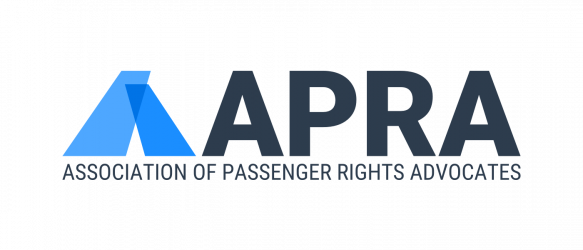Give airlines a finger and they’ll take two arms: why Regulation EC261 is crucial for consumers
If the COVID-19 crisis has taught us anything, it is that EU air passenger rights are absolutely vital. Without the much-needed protection given to consumers under the European Regulation 261/2004, air passengers are left entirely at the mercy of the airlines, which is not a desirable situation to be in.
We have all witnessed the struggle the airlines went through, as a result of the current pandemic. Cancelled flights and grounded planes have been dominating the news for months. This situation called for some leniency on the side of passengers as most cancellations have been the result of governments restrictions due to COVID-19. The European Association of Passenger Rights Advocates (APRA), representing air passengers across the EU, was one of the first organisations to label cancellations that were a direct result of COVID-19 as ‘extraordinary’, temporarily absolving the airlines of their responsibility to compensate passengers.
However, the airlines saw this as an opportunity to start forcing vouchers on their passengers, instead of giving them their money back. Under the passenger rights Regulation, consumers have a right to get a full refund of their ticket within 7 days, if they choose. Still, APRA advised passengers to accept vouchers as much as they possibly could, to help the airlines. And now, passengers are paying once again, as billions in taxpayers’ bailout money are flowing into airline coffers. Nobody benefits from a further consolidation of the aviation market, certainly not passengers, and we all want as many healthy airlines as possible to be left standing at the end of this crisis. But when airlines are given a finger, they take two arms.
Instead of offering vouchers to passengers, and making them as attractive as possible, airlines forced vouchers on passenger, denying them the choice. A lot of passengers may be able and willing to take a voucher, but plenty of families have to work hard and save up the entire year, to be able to afford one vacation. These people can’t afford for their money to be used as an interest free loan by the airlines. And let’s not forget that some of those families have lost their jobs or suffer reduced incomes.
In most cases the vouchers had a very limited expiration date and a value below the original price, omitting paid extras like baggage and preferred seating. Even when the European Commission stood strong in the passenger rights debate, telling Member States and airlines to comply with the law and either offer their customers refunds or an attractive voucher, they were very quick to open their bag of tricks and offer refunds, but only for tickets purchased after the 15th of May – as if the law didn’t exist before the EU reprimanded them by means of their guidelines, tabled on that same date.
Perhaps an even more reprehensible trick is the recent practice by some airlines whereby they make flights available for booking online, accepting passengers’ money, only to cancel the flights again after a number of hours, offering only vouchers! Clearly, this is nothing but a cheap cash grab.
What these practices teach us is that no matter how big the safety net, no matter how lenient and forgiving consumers are, without a functioning and properly enforced consumer protection framework, airlines will always choose their bottom lines over their customers. We need Regulation EC261 and we need it now.
